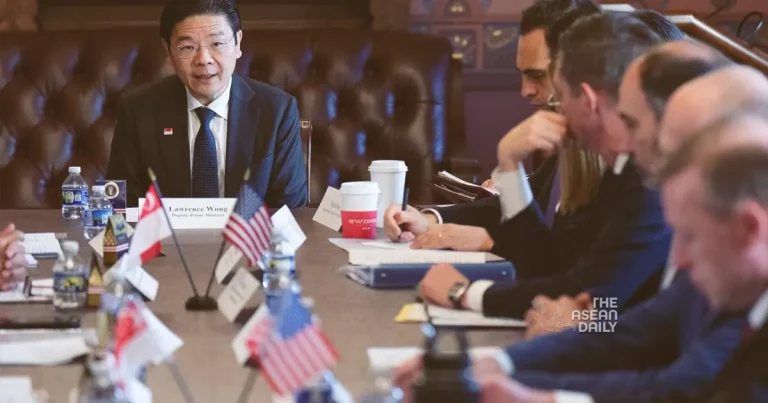13-10-2023 (WASHINGTON) Deputy Prime Minister and Finance Minister Lawrence Wong emphasized the joint responsibility of Singapore and the United States in ensuring the responsible and beneficial development of advanced technology, addressing global challenges. He made these remarks while inaugurating the inaugural US-Singapore dialogue on critical and emerging technologies during his ongoing working visit to the US.
Critical and emerging technologies, including artificial intelligence (AI), quantum computing, biotechnology, and cybersecurity, have substantial potential to impact national security and economic prosperity.
On the US side, National Security Adviser Jake Sullivan and Acting Special Envoy for Critical and Emerging Technology Seth Center led the dialogue, representing Secretary of State Antony Blinken, who was on an emergency visit to Israel. The Singapore delegation was led by Minister for Foreign Affairs Vivian Balakrishnan and Minister for Communications and Information Josephine Teo, who also holds the position of Minister-in-Charge of Smart Nation and Cybersecurity.
DPM Wong acknowledged the transformative potential of these new technologies, which have engendered optimism but also raised concerns, including fears of job displacement, increased instances of scams and deep fakes, and ethical dilemmas regarding AI and biotechnology in military applications.
Addressing these complex issues necessitates the establishment of appropriate standards and governance frameworks, with recognition that these are global challenges no single country can resolve independently.
DPM Wong warmly welcomed the US-Singapore dialogue as a platform for addressing these critical questions. Although Singapore and the US differ significantly in size, they play complementary roles in innovation and share a common vision when it comes to critical and emerging technologies.
The US serves as a global innovation hub, home to numerous cutting-edge companies and universities at the forefront of science and technology. Singapore, despite not occupying that leading position, contributes valuably to the global innovation value chain due to its nimbleness and agility, enabling the swift adoption and scaling of technology solutions across its economy and society.
Mr. Wong emphasized that Singapore can assist in establishing early consensus on common tech standards for the utilization of critical and emerging technologies. This alignment reflects the two nations’ shared vision for the future of technology.
Both nations concur on the importance of fostering open, accessible, and secure technological ecosystems as the key to leveraging technology’s potential for addressing pressing global issues.
A joint statement issued at the conclusion of the dialogue disclosed that Singapore and the US had committed to launching new bilateral initiatives across various domains, including AI, the digital economy, biotechnology, and quantum information science and technology. This includes the establishment of a bilateral AI governance working group to advance principles for safe and responsible innovation and the potential development of a multilateral code of conduct.
The next session of the dialogue is scheduled to be held in Singapore in 2024.
During his visit, Mr. Wong discussed areas of bilateral cooperation and geopolitical matters in meetings with National Security Adviser Jake Sullivan and other US officials. Singapore and the US share common strategic interests in various domains, and their bilateral cooperation also serves as a pathfinder for the US’s broader engagement with the region, particularly in new and emerging areas.
On the final day of his visit, Mr. Wong will participate in a discussion on the future of bilateral ties at the Centre for Strategic and International Studies (CSIS), a prominent US think-tank. This event is part of the CSIS Asean Leadership Forum, providing a platform for senior officials from Southeast Asian countries to address critical issues before a Washington-based policy audience.




